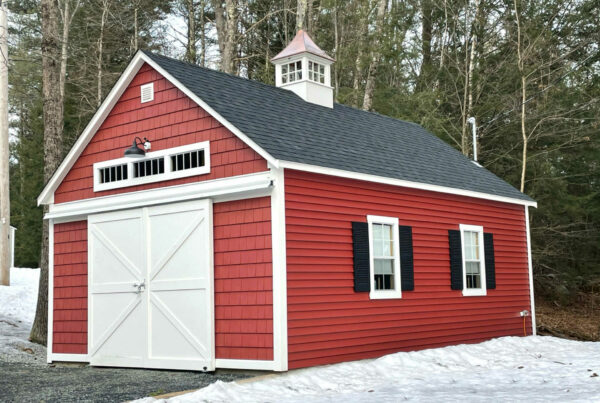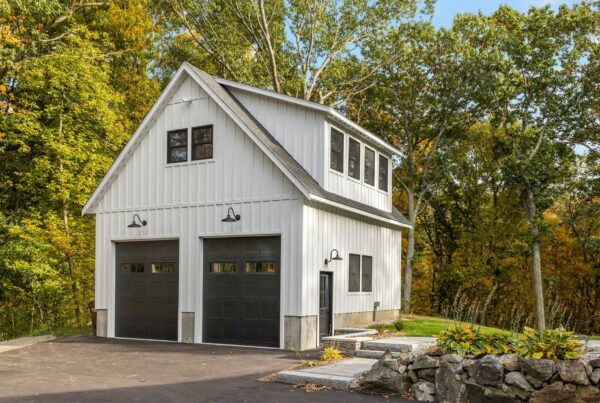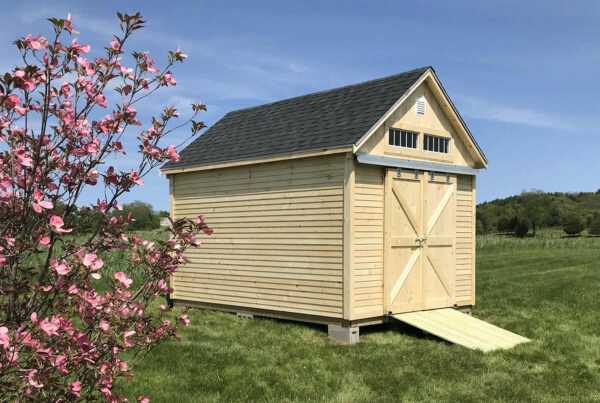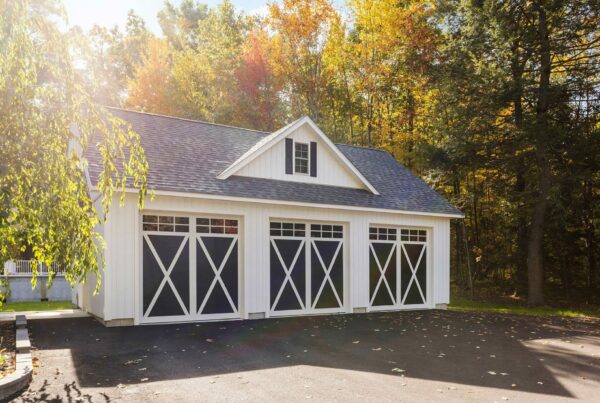So, you are ready to build the dream shed you have been talking about for years. Congratulations!
However, before you bring your outdoor vision to life, you may want to know if your town or city requires specific permits for backyard sheds.
Unfortunately, the answer is not always a simple one. Determining a permit’s necessity depends on a number of factors, including where you live and what type of shed you plan on building.
To help you determine this, we will review what Maine, Massachusetts, and New Hampshire laws require for shed construction. First, let’s explore why a permit may be necessary.
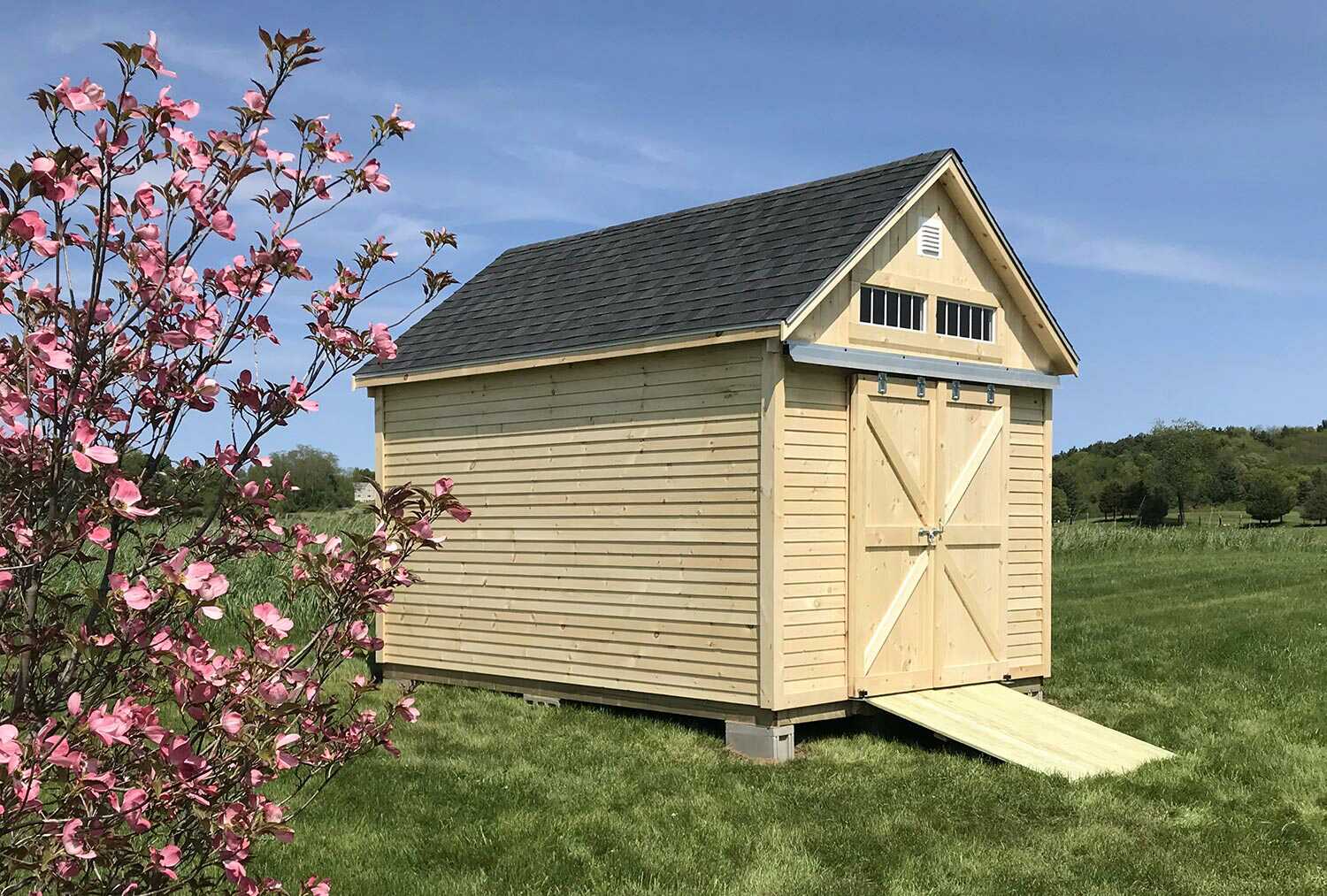
10X14 Cohasset with transom window, pine siding, and ramp.
Why Are Permits Necessary for Sheds in the First Place?
If you live in Maine, Massachusetts, or New Hampshire, you might be wondering why you need a permit to build a shed in the first place. After all, sheds are typically small structures that don’t require any new construction, demolition, or renovations to your home.
A permit is necessary for building a shed because it ensures that the building will be safe and meet all the required building code standards. By obtaining a permit, you are receiving confirmation from local authorities that your design plans will result in a new shed that is built to last and will be safe for everyone to enjoy.
Certain municipalities in New England may have setback requirements that make a permit necessary. A setback refers to the minimum distance the shed must be built from the property line and is typically 10 feet in Maine, 6 feet in Massachusetts, and 3 feet in New Hampshire.
If your shed is too close to the property line, a conflict or dispute could arise if your neighbor decides to build something in their own yard. A permit serves as a formal pre-approval that guarantees your shed will be installed in an area of your yard that is acceptable to your community and will not interfere with others’ building plans.
The custom options you choose to include in your shed design may affect permitting requirements. Examples include but are not limited to:
- Porches
- High roofs or ceilings
- Large square footage (typically over 200 square feet)
- Electrical connections
- Water lines
While the permitting application and approval processes often appear to contain a million moving parts, you do not have to navigate them alone. Your shed builder may assist you by pointing you toward the necessary resources for obtaining permits in your municipality.
Permit Requirements for Maine, Massachusetts, and New Hampshire
Maine
At the state level, Maine does not require construction permits for what are deemed standalone storage occupancies, such as a shed. However, individual municipalities can and often do impose additional permitting restrictions on sheds.
Before starting your new project, check your town’s local zoning and construction permit requirements to see if sheds are mentioned. If you have any doubts about needing a permit, contact your municipal government to ensure that you do not need any specific permits before you begin installing your shed.
For example, York utilizes the Maine Uniform Building and Energy code for their building permits. As of October 2022, the fee for a building permit in York is $10.00 per $1000.00 of the project’s total cost with a minimum of a $50.00 fee. If you plan to eventually install plumbing in your shed, you will also need to sign off for water and sewer in your permit application.
Massachusetts
The Massachusetts Building Code requires a building permit for any structure over 200 square feet; any that exceeds 600 square feet must have footings. Municipalities may also have their own additional regulations or guidelines beyond these two that the state government establishes.
As an example, the City of Haverhill requires a plot plan and application for any shed; even if replacing one that is already standing. If you plan on installing electricity in your building, you will also need a separate electrical permit for the utility connection.
New Hampshire
Like Maine, New Hampshire allows its municipalities to establish most of their permitting requirements for building new non-occupied structures on properties. As a result, these standards can vary widely from one town to the next.
For example, Kingston’s requires a permit for all structures so that the Building Inspector can verify that the mandatory municipal setback standards are satisfied and that the structure is safe. Conversely, the Town of Exeter requires that residents meet directly with Building Department administrators when filling out permit applications to consider the various needs of any building project conducted in the town.
If you plan to design and build your own custom shed in New Hampshire, check with your town to see what permits may be necessary to bring your dream to life.
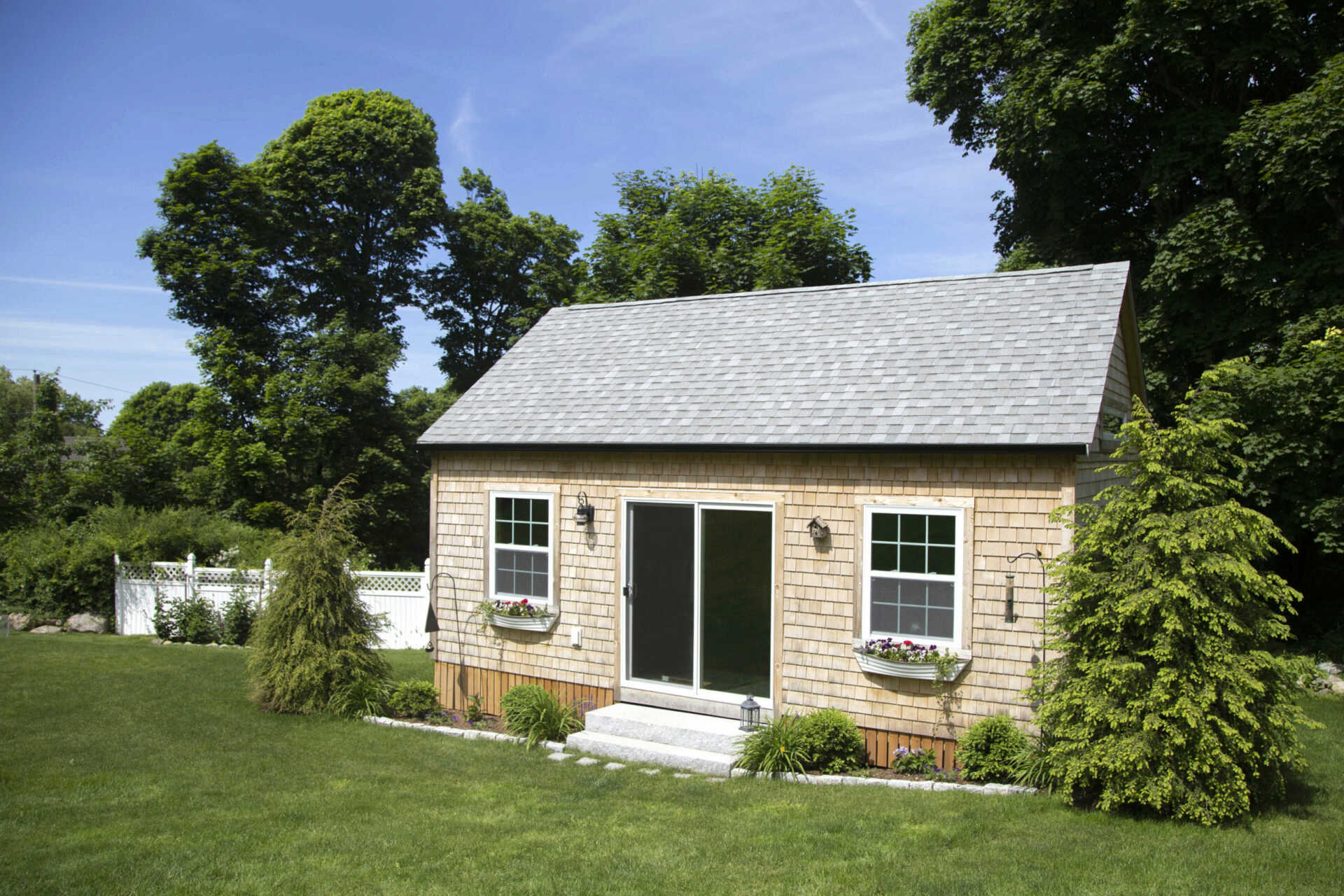
14X20 Lexington with cedar shingle siding and a 5′ patio door
Building Your Dream Shed in New England
Since 1962, Post Woodworking has designed and installed countless customized sheds for homeowners throughout Massachusetts, New Hampshire, and Southern Maine. Every shed we build reflects the big vision of the person who dreamt it.
If you are ready to design your own dream shed, find inspiration in our shed styles, create your own 3D mockup with our Shedview tool, or contact us to start exploring the possibilities for your new shed.
Recent Posts
